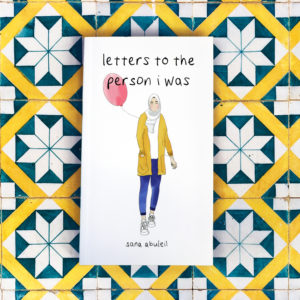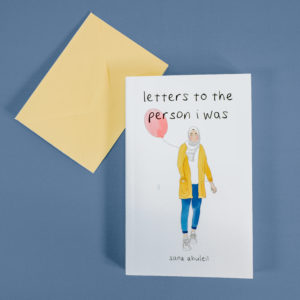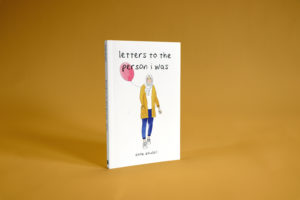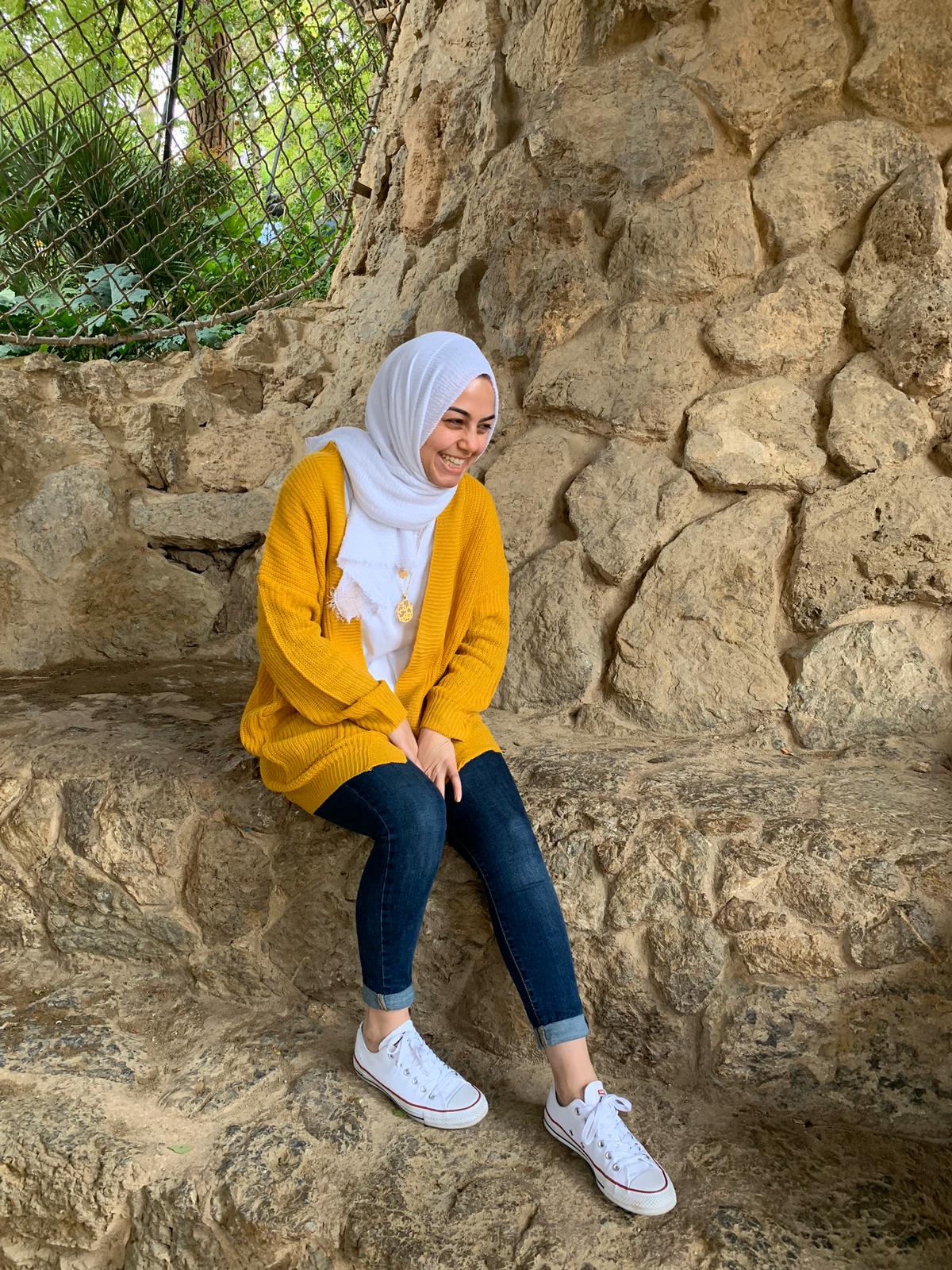Seven Questions with Sana Abuleil
“you’ve been told / you love like whales drink ocean water / that you open too wide / take in too much / too quickly,” poet and educator Sana Abuleil writes in her latest collection, letters to the person i was, published this month by Andrews McMeel Universal.
This quote opens one of Abuleil’s letters to her past self, a format that characterizes the overall book. Through these inner-dialogues, Abuleil embraces the parts of herself that the world may see as too much, using poetry to convey a full range of complicated and intense emotions. From mental health to broken hearts, Abuleil’s poems tackle universal struggles with a compassionate, deeply personal voice. In doing so, she hopes to lead both herself and her readers to a place of hope. Abuleil gave Read Poetry a glimpse into her inspiration, writing process, and future poetry goals.
Kara Lewis: What inspired you to write this collection?
Sana Abuleil: I needed somewhere to put the pain I was feeling. When I was dealing with mental health at a young age, I thought I was alone. I wanted to write this book so I didn’t have to feel that way again. I wanted to write this book for the people who can’t sleep at night. Now, they can find somewhere to put the pain they’re feeling, too.
 KL: This collection centers around the idea of writing letters to your past and future self. How does this exercise motivate your poetry, and how does it shape your writing process?
KL: This collection centers around the idea of writing letters to your past and future self. How does this exercise motivate your poetry, and how does it shape your writing process?
SA: This writing style started naturally. There was so much I wanted to say to my younger self—so many kinder things than I had been saying for years—and I thought I would turn it into poetry. But as time went by, it got harder, because I started letting go of all the pain, and I didn’t know what else to tell my younger self. If it wasn’t about the pain, then what was it about? What else was there to say? So, I stopped writing for a while because I needed to figure out who I was without the hurt. That’s when the last chapter of this book started forming. It’s hopeful. It’s about love, happiness, and letting go. Writing letters to my past and future self was freeing, challenging, and therapeutic. It’s a writing style and process I’ll come back to again.
KL: The book regularly mentions the challenge of continuing to write. How did you push through this mental and emotional obstacle?
SA: I pushed through in many ways. I took breaks and worked on other projects, visited new places and met new people. I wrote all the bad poems out, in hopes that it would make room for good ones. I also ran into challenges writing, because my writing has always come from a place of pain and sadness. By the third chapter, these feelings were fading. This book healed me in more ways than I can count. So, I struggled to find my voice when I wasn’t writing about pain. The tone even shifts in the third and fourth chapters, to be more about love and healing. I’m happy about that because it means I really did find a way to let it go.
KL: Your writing regularly uses physical health and hospitals as metaphor systems. Where does this come from and how does it relate to your messages about love, heartbreak, and healing?
SA: I grew up in a family of doctors, engineers, and computer scientists. I’m the only one who took a different route. Hearing this lingo around the house influenced my writing. Growing up, I understood how emotional pain manifested physically, and this formed how I perceived heartbreak and sadness. These metaphors come into play in the healing part the most, because it’s easier to imagine a wound healing or being stitched together than it is to imagine a broken heart being whole. With emotional and mental health, there’s always hope of healing. It may not appear as tangibly as physical health, but I want my readers to understand it’s possible.
KL: Different universes and different versions of the self play a big role in this work. How do these different selves and realities collide to create your poetic voice?
SA: I am a combination of every version of me I’ve ever been. I want to carry my different selves, learn from them all, and be a better version than before. This is the root of my poetic voice. My poems are a result of things I’ve gone through, things I’ve seen the people I love experience, and things I still hope to someday feel. I think being able to put myself in other people’s shoes, or even in the shoes of the person I once was, helps me find a unique voice that people can relate to.
KL: What’s next for your poetry career?
SA: I’m already working on a third collection of poems! I’m excited to see where letters to the person i was takes me. I’m not sure what the future holds, but I can be certain that I’ll never stop writing.
“I needed somewhere to put the pain I was feeling. When I was dealing with mental health at a young age, I thought I was alone. I wanted to write this book so I didn’t have to feel that way again. I wanted to write this book for the people who can’t sleep at night. Now, they can find somewhere to put the pain they’re feeling, too.”
 KL: What advice would you give to aspiring poets?
KL: What advice would you give to aspiring poets?
SA: Write. Write. Write. I used to get really hung up on making sure each poem was perfect, and it stopped me from writing the things I wanted. But writing isn’t about perfection. So, my biggest piece of advice would be to keep writing, even when you think it isn’t good enough, even when you think it’ll never take you anywhere. Practice may not make perfect, but practice makes progress. So, keep writing. Always.
You can buy Sana Abuleil’s letters to the person i was here.




